Building Our Beloved Community
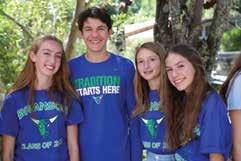
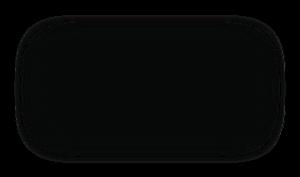
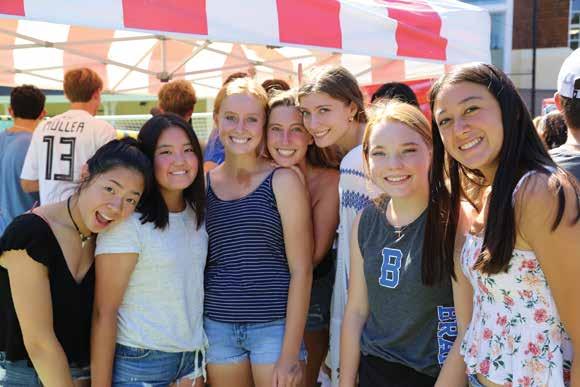
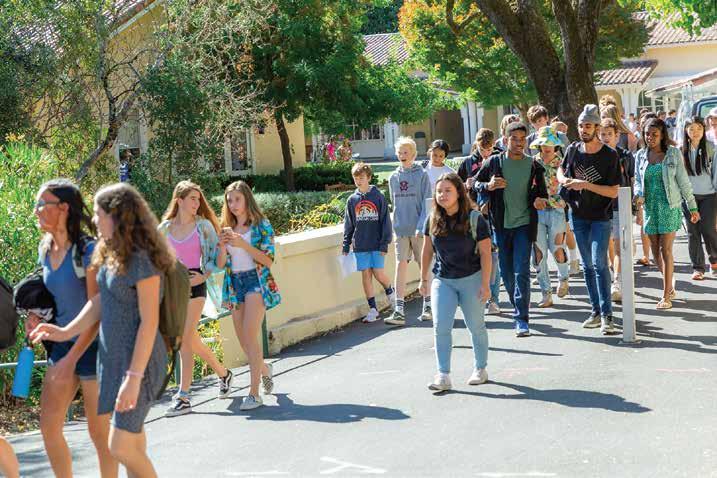



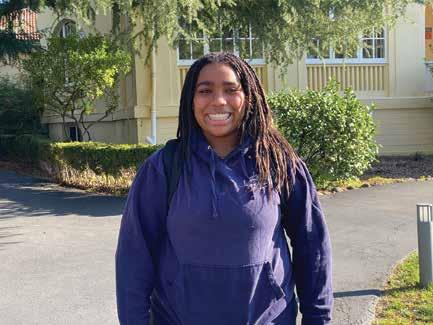



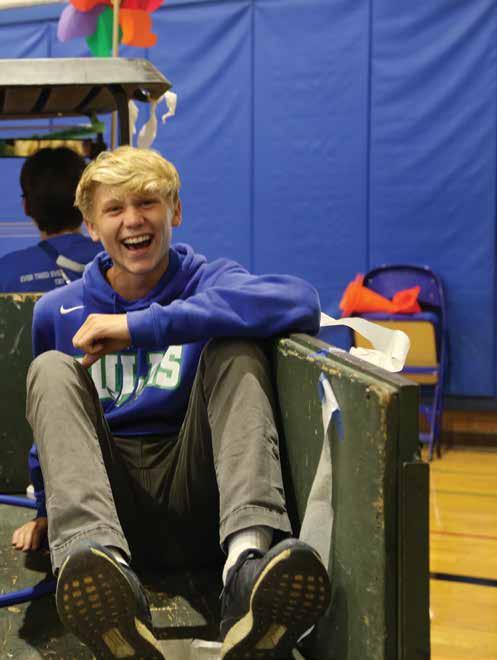
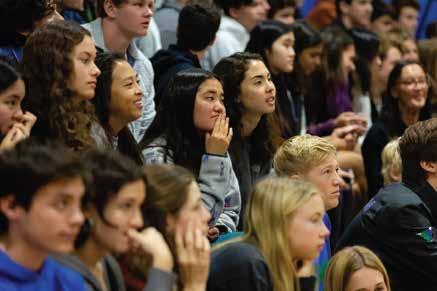
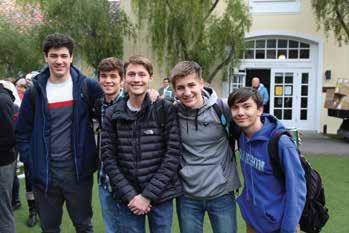

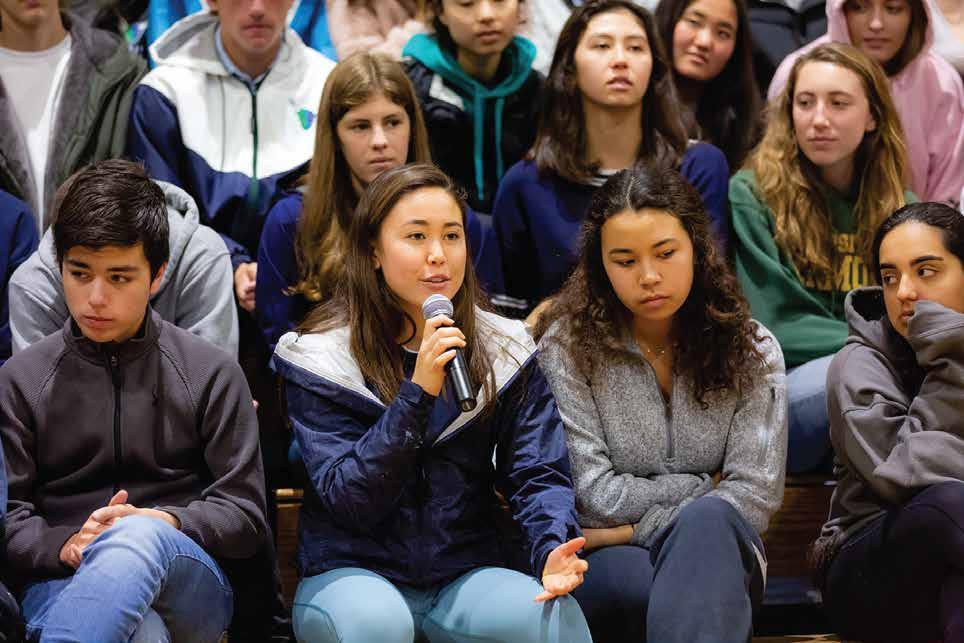

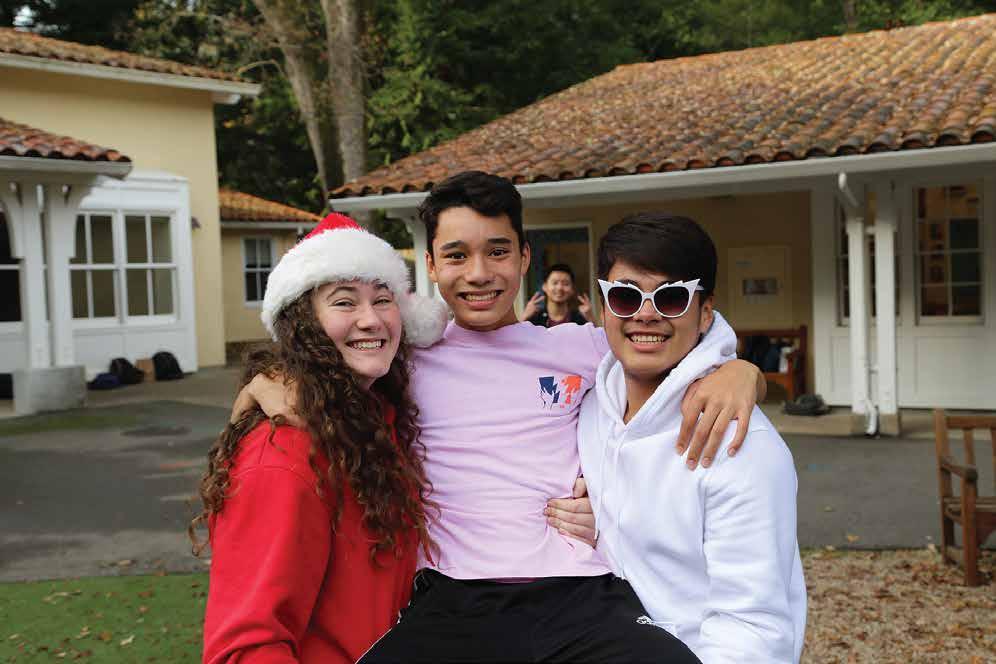


2
3
4
1Milem, Jeffrey. 2003. “e Educational Benefits of Diversity: Evidence from Multiple Sectors.” In Compelling interest: Examining the evidence on racial dynamics in higher education, 126-169. Palo Alto, CA: Stanford University Press.
Branson strives to model diversity as excellence. We view this goal as a pursuit rather than a destination. It’s something that we measure by our progress, not solely our competency. We improve through ongoing critical reflection, rather than by absorbing knowledge. We are reimagining education and redefining brilliance to prepare our students for their future.
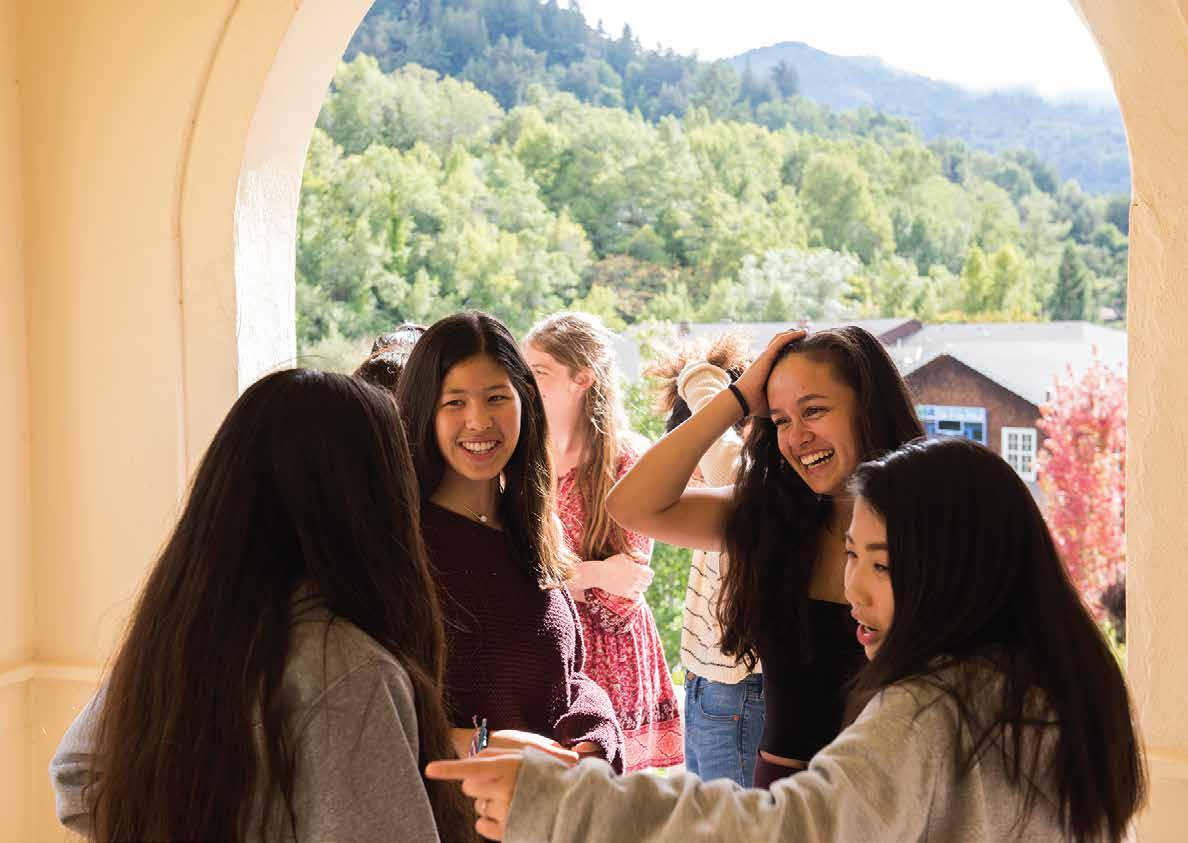
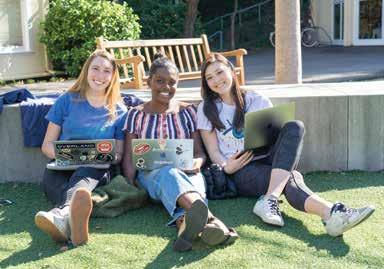
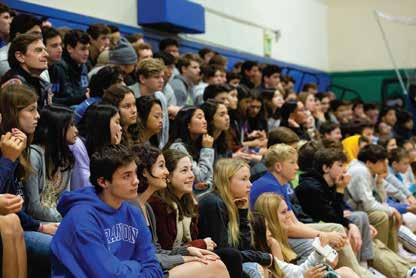
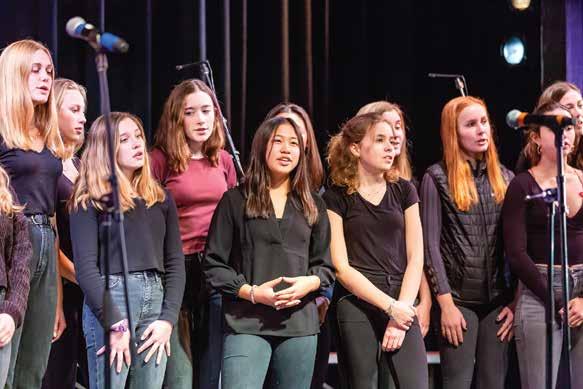
Can you imagine growing up with the label, “most likely to fail?” Why would that person want to engage in school? Can you imagine growing up and being told, “don’t fail?” Why would that person ever take any risks? In these questions lies the opportunity for all of us to ask, “How can we redefine what it means to receive an excellent education?”
For far too long, the traditional educational approach in the United States has been to teach students to memorize as much information as possible, and success has been measured by the ability to recall those facts on standardized tests. At Branson, we have long realized that this type of education does little to prepare students for the world they will encounter after graduation and gives them few of the skills they will need to navigate it. In today’s world, developing the skills they do need—including innovation, adaptability, critical analysis, cross-cultural communication, and teamwork—requires direct exposure to diverse perspectives and life experiences. So the question becomes: How can we redefine the value of different students’ lived experiences and in doing so, redefine what we see as an excellent education?
Let’s take the example of the critical skill of teamwork. A 9th grader enters Branson with their own past experiences of teamwork. Because of the diversity of our student body, that student will encounter a wide variety of students who have different lived experiences of teamwork. When they all work together, students come to better understand and value their own life experiences, to value those of other students, and to begin to learn new definitions of “teamwork.” is is a skill necessary for every student’s journey beyond high school, and will prepare them for the world ahead.
5
is is how diversity equates to excellence—as students practice and refine these skills, they become able to use
6
ere are two integral components of building our Beloved Community. e first is to establish an ongoing inquiry of who in our diverse community feels a deep sense of belonging here, who does not, and why? We examine diversity in our demographics through the 15 categories of identity, which include race, class, gender, sexual orientation, nationality, and religion. At Branson, we ask our community to focus on consistent critical self-reflection that enables our students and faculty/staff to find balance between their own needs and the needs of others through several ongoing inquiries:
What issue are you paying attention to?
How are you feeling?
What is your proximity to the issue?
How might you inquire for deeper engagement?
e second part of building a Beloved Community is developing programming to enhance the experience of every employee and student, from the time they arrive at Branson to the time they leave or graduate. is includes establishing, diversifying, and sustaining our affinity and ally spaces to deepen one’s sense of identity. ese are spaces where we both build fellowship and push each other outside of our comfort zone and engage in the healthy process of stretching our minds.
What is my personal reflection?
How can I engage with others?
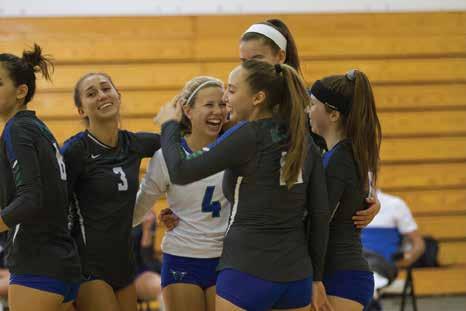
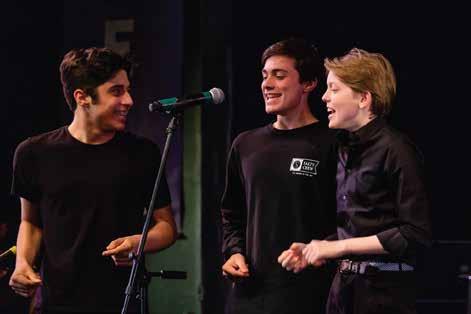
How am I identifying and addressing systemic change?
We are excited and committed to the ongoing work of the Diversity, Equity, and Inclusion office and yet we know that it can only be successful if it is sustained and integrated into every classroom, conversation, and corner of Branson’s community.
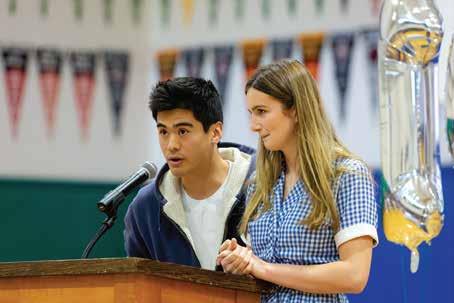
7
On the Road to Excellence
Branson has a long history of striving to do better. Our efforts today to become a more inclusive community build on the work of many former (and current) Branson community members, who recognized that a more diverse community is one that better serves everyone. eir commitment to equity created new opportunities for students and teachers to come to Branson through programs such as the Bess K. Gallard Fellowship, Making Waves, and Next Generation Scholars.
Branson’s Diversity, Equity, and Inclusion Committee has been active for 29 years. Its work has built community through spaces such as the Families of Color affinity group, which has put on at least two annual events for over 25 years. Branson’s DEI work has sought to build an inclusive community through educational and celebratory programming, including one of our most cherished traditions, Gospel Night – an annual event that has been bringing the community together for a night of gospel songs for 25 years. More recently, the LGBTQ+ Families affinity group began meeting in 2016.
Branson also has valued partnerships with organizations such as A Better Chance (ABC), No Place for Hate, Strategenius, and E3: Education, Excellence & Equity.
Despite a longstanding history of DEI work, Branson has much more to do. In 2018, Branson renewed its commitment to DEI through the Strategic Plan—a bold document that laid the path for Branson’s future for 2019 to 2024.
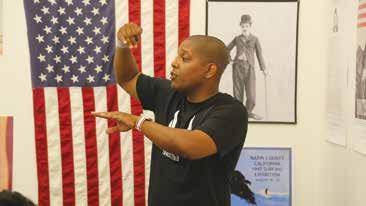
DEI at
Branson—
8
emboldening our commitment to inclusion. To do so, our plan lays out specific, achievable, ambitious, and necessary goals.
Goal 3.1: Study current diversity demographics at faculty/staff/student levels and establish methods and measures to increase diversity; create metrics by which we can measure our progress.
Goal 3.2: Raise substantial additional funds to support expanded financial aid and other initiatives to allow the most talented students from diverse socioeconomic backgrounds to attend Branson.

Goal 3.3: Expand the size of the student body to attract more diverse candidates.
Goal 3.4: Support existing and explore new mechanisms for students and families of all backgrounds to feel fully engaged in the complete Branson experience.
Goal 3.5: Emphasize community building and inclusion through expanded educational programming and dialogue on the value of diversity in education.
Goal 3.6: Devote professional development resources to address teaching a more diverse student body.
with, and supported by Branson’s DEI program. In the next sections, we outline the efforts and programs currently underway with each of these five groups as an example of some of the work we are undertaking to fulfill Branson’s mission: to develop students who make a positive impact in the world by leading lives of integrity, purpose, learning, and joy. We know that this mission cannot be accomplished without a deep, ongoing, institutional commitment to DEI: Branson believes that diversity, equity and inclusion are essential components of an excellent learning environment and a vibrant, caring community. We aspire to create a community in which every member feels a deep sense of belonging and inclusion.
9
We want each student to feel like they can show up at Branson as their authentic self, express their views openly and with dignity, have their differences celebrated, and feel seen and valued for both their strengths and areas of growth. We know that when this is true, every student’s learning is deeper, richer, and leaves them better prepared for wherever their path takes them. Where diversity is accepted, supported, and celebrated, education is excellent.
Branson’s recent and ongoing DEI work with students includes:
Hosting Dr. Cornel West and Bakari Kitwana for our 2019-2020 Human Development Day: “Beloved Community”
Establishing a DEI Student Committee
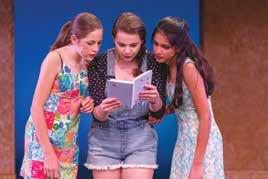
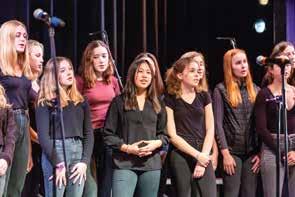
Increasing time for student affinity groups: Alliance of Indian and Middle Eastern Students (AIMES), Alphabet Group (LGBTQ+), Black Student Union (BSU), Funky Families Fun (FFF), Latinx, Men’s Leadership, e Asian and Asian American Affinity Group (TAAAAG), Religion Afinity Groups, Women of Color (WOC)
Future initiatives to support Branson students include:
Creating a new Human Development class in civic leadership and anti-racism for 11th and 12th graders
Expanding curriculum to include a wide diversity of perspectives and voices
Offering students different ways of engaging with the material to meet the needs of diverse learning styles
Continuing to infuse Social Emotional Learning (SEL) into everything we do
Continuing the work of the successful ballot measure campaign and work with the Town of Ross to increase enrollment
Continuing to increase representation of students of color through expanded enrollment
Reassessing how the school marks cultural/religious celebrations to ensure greater inclusiveness for all members of our diverse school community
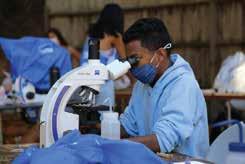
We strive to make sure all students who arrive at Branson feel a deep sense of belonging and inclusion.
10
Branson’s recent and ongoing DEI work with families includes:
Providing consistent Parents’ Association DEI training
Facilitating the Parents’ Association DEI Committee
Facilitating two book circles with the Parents' Association on An Indigenous Peoples’ History of the United States and His Truth Is Marching On: John Lewis and e Power of Hope in collaboration with the DEI director and English and History departments
Translating and interpreting Branson communications and head of school presentations
Setting aside $100,000 in the Community Cares program to support families in need
Future initiatives to support Branson families include:
Expanding translation and interpretation program
Providing deeper DEI engagement opportunities for families
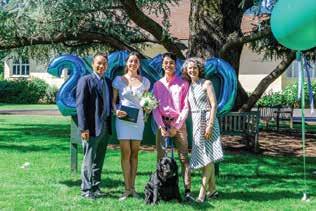
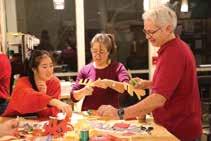
We strive to make sure the work we do with our students is extended to Branson families, so that all Branson community members feel included, engaged, and supported.
11
We are committed to not only providing an equitable, fair, and inclusive environment for our faculty and staff, but also equipping them with the tools to better support and teach a diverse student body. We are determined to increase representation of faculty and staff of color and other identities.
Branson’s recent and ongoing DEI work with faculty and staff includes:
Creating an annual DEI professional development requirement for all faculty/staff
Facilitating DEI professional development sessions every two weeks for faculty/staff
Providing fall and spring sessions in how to become stronger white allies and male allies
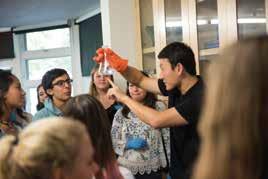
Creating DEI rubrics for the administrative team to measure progress in each of their departments
Future initiatives to support Branson faculty and staff include:
Developing two-week long “Immersives” at the end of each school year for all grade levels where topics might range from DEI community engagement to environmental justice projects
Hiring bilingual administrators and staff in key areas
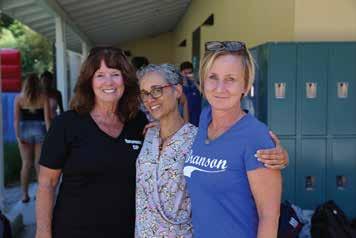
Developing differentiated academic metrics to incorporate DEI
Creating a “Standards of Practice” plan that outlines professional expectations and requirements for all employees
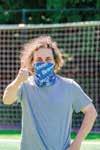
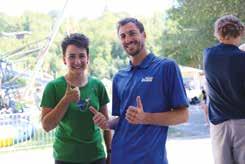
Reallocating professional development budgets to create specific funds to be used for training in culturally responsive teaching through social emotional learning and equity based educational practices
Reassessing how the school marks cultural/religious celebrations to ensure greater inclusiveness for all members of our diverse school community
Creating an Equity in Action Conference with scholars across disciplines
Expanding the Gallard Fellowship program—a program that enables Branson to bring Historically Black College and University (HBCU) graduates to teach at Branson (see page 8)
12
We know that leadership matters, and that diverse representation on our Board of Trustees is critical to building a more inclusive and equitable community.
We also know that educating our Trustees on DEI issues and working with them to address these issues will ensure that Branson makes real, tangible progress toward achieving our goals.
Branson’s recent and ongoing DEI work with the Board of Trustees includes:
Providing DEI training sessions during Board meetings facilitated by Branson’s Director of Diversity, Equity, and Inclusion
Establishing a scorecard of DEI metrics, with regular updates and analysis to quantitatively monitor how well DEI is integrated into the Branson community
Increasing the capacity of DEI Trustee Committee members to examine how DEI practices are implemented in other Trustee Committees
Growing the DEI Trustee Committee’s understanding of how a diverse community equates to educational excellence and empowering them to further our DEI mission as Trustees
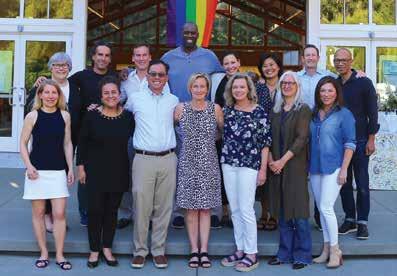
13
We are committed to supporting our large and diverse alumni community. We are focused on listening to all alumni perspectives, bringing their range of knowledge and expertise to Branson, and providing them DEI educational opportunities.
e Branson Alumni Association aims to be inclusive, supportive, and equitable.
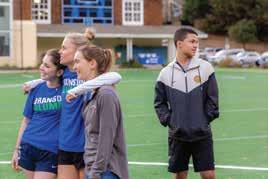
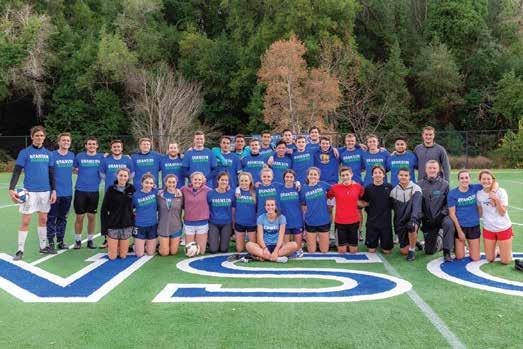
Branson’s recent and ongoing DEI work with Branson alumni includes:
Hosting Summer Series on Race and Racism facilitated by Branson’s DEI and alumni directors, which included:
• Alumni DEI trainings
• Alumni of Color Listening Sessions
Creating affinity groups on our new online networking site, BransonConnect.org, for alumni of color and LGBTQ+ alumni
Continuing to build more diverse alumni panel events, from our summer panel on “Branson Alumni Leading DEI Efforts in their Community or Workplace,” to highlighting the work of alumni of color on panels like our fall “Future of American eater” event
Future initiatives to support Branson Alumni include:
Continuing to expand programming for alumni of color, LGBTQ+ alumni, and other identities that are often marginalized
Continuing to expand networking opportunities for alumni affinity groups
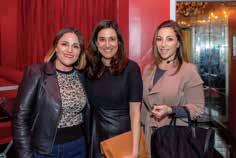
Working with our BransonConnect.org networking platform’s customer board to help them improve their services for other schools’ networking groups such as the alumni of color and first generation scholar groups
Continuing to offer DEI educational opportunities for Branson alumni, both around our DEI work at Branson and to offer learning and growth opportunities for alumni on DEI issues more broadly
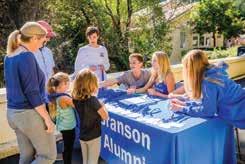
14
We invite you to join us in this journey.
2021_0728 15
"And if you follow your truth down the road to peace and the affirmation of love, if you shine like a beacon for all to see, then the poetry of all the great dreamers and philosophers is yours to manifest in a nation, a world community, and a Beloved Community that is finally at peace with itself.”
John Lewis










































